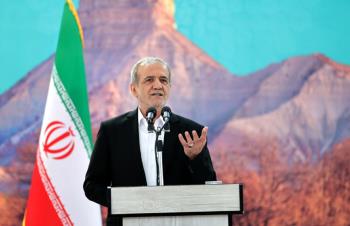Alwaght- It has been nearly a year since the news media and strategic think tanks have begun to circulate the news and reports on willingness of Arab countries of the Persian Gulf, including Saudi Arabia and the UAE to become nuclear. Media have frequently cited the formal and informal officials of those countries. Saudi-based Arab News newspaper has recently cited Yousef Al-Otaiba, the United Arabic Emirates’ envoy to Washington, as saying in a telephone call with "Ed Royce," the Chairman of the United States House Committee on Foreign Affairs that "As according to Joint Comprehensive Plan of Action (JCPA) Iran has the right to enrich uranium, it is likely that the UAE also seek uranium enrichment technology…". The UAE ambassador to the US also said that “Your worst enemy (Iran) has achieved the right to enrich. It’s a right to enrich; now your friends are going to want such a thing too, and we won’t be the only country to have such a demand”.
It should be noted that the UAE is not the first and only Arab country to speak about the right of Arabic speaking countries to enrich uranium. In the past, Saudi Arabia and others in line with their opposition to Iran's nuclear negotiations, demanded to have such a right too. While the overall assessment of the Arab countries shows that except for funds, the Arab countries have no capability to enrich uranium on their own territory; in other words, they virtually lack the technology and indigenous knowledge required in this regard. Besides, in terms of security and safety measures, these countries lack the capacity to have the right for enrichment in their own country. Most importantly, there are serious doubts about the Western countries’ consent to such demands, particularly the United States, as they have declined to respond to the demands of these countries.
Accordingly, considering all these conditions which technically makes it almost impossible for Arab countries to enrich uranium, it seems that these positions are aimed to oppose Iran and its growing power in the region. Concurrent with Iran’s missile tests, and releasing the news of its Missile City Deep Underground, the demand might be aimed at stopping the West’s concessions to Iran in its plans for developing its nuclear programs, defense and missile plans. To Arab countries of the Persian Gulf, Iran’s success to achieve nuclear technology in the West Asia, on the one hand, will disturb the balance of power in the region, and on the other hand can encourage a nuclear race. This, together with other factors of power, will give rise to new threats in the surrounding environment of Saudi Arabia.
Therefore, we may conclude that the accord between Iran and the West over the nuclear program, the political advantages of Iran in the region, lifting of economic sanctions and Iran's freedom of action in economic dimension have all led to a new understanding among the Arab officials whose effects could easily be seen in the speech and behavior of Saudi officials over the last year. In fact, this perception has made the manner of these countries, including Saudi Arabia and the United Arab Emirates more explicit and pragmatic, to the extent that they will be forced to make decisions that will enable them to adjust the effects of shift in regional balance.


























